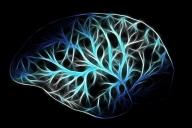When we're really hungry and want to eat a lot, our brain actually uses our sense of taste to stop us from going overboard.
A group of scientists found that when we taste food, a specific set of brain cells immediately pay attention and help us eat in moderation.
These cells receive signals from our mouth and work together with signals from our gut to control how fast and how much we eat.
A surprising discovery
This new discovery gives us a better understanding of how our brain controls our eating habits.
The study could also help improve weight-loss drugs like Ozempic by showing us how they work and how to make them more effective.

By using new techniques, the scientists were able to study these brain cells in an awake mouse, which was a big challenge in the past.
They found that these cells respond to taste signals rather than signals from the gut when the mouse ate food normally.
This was surprising because it had been believed that gut signals were the main factor.
The brain cells they studied affect how much we like the taste of food and how quickly we eat.
It's like our brain has two parts—one part says, "This tastes good, eat more," while the other part says, "Slow down or you'll get sick."
These brain cells act quickly in response to taste, while other brain cells take longer to respond to signals from the stomach and intestines.
These slower-acting cells can help us feel full for a longer time.
Weight-loss drugs like Ozempic mimic the hormones released by these slower-acting cells.
Why it's important
By understanding how these brain cells work together, we can develop personalized weight-loss plans that optimize the signals from both sets of cells.
The researchers are planning to further investigate how taste signals and gut signals interact to control our appetite during a meal.
Previously, we talked about anise benefits.








